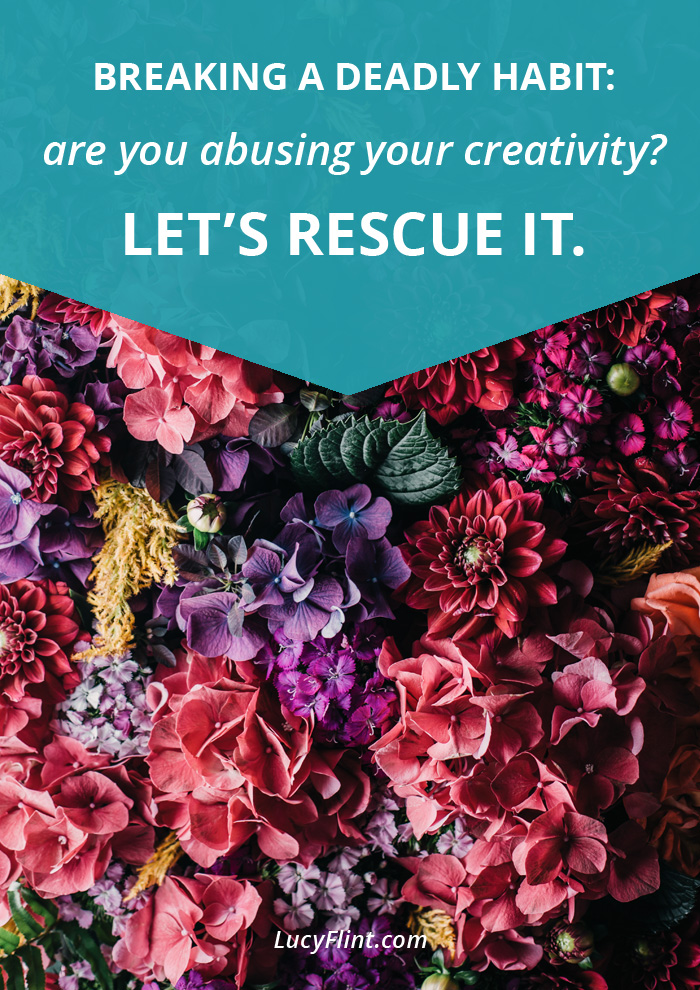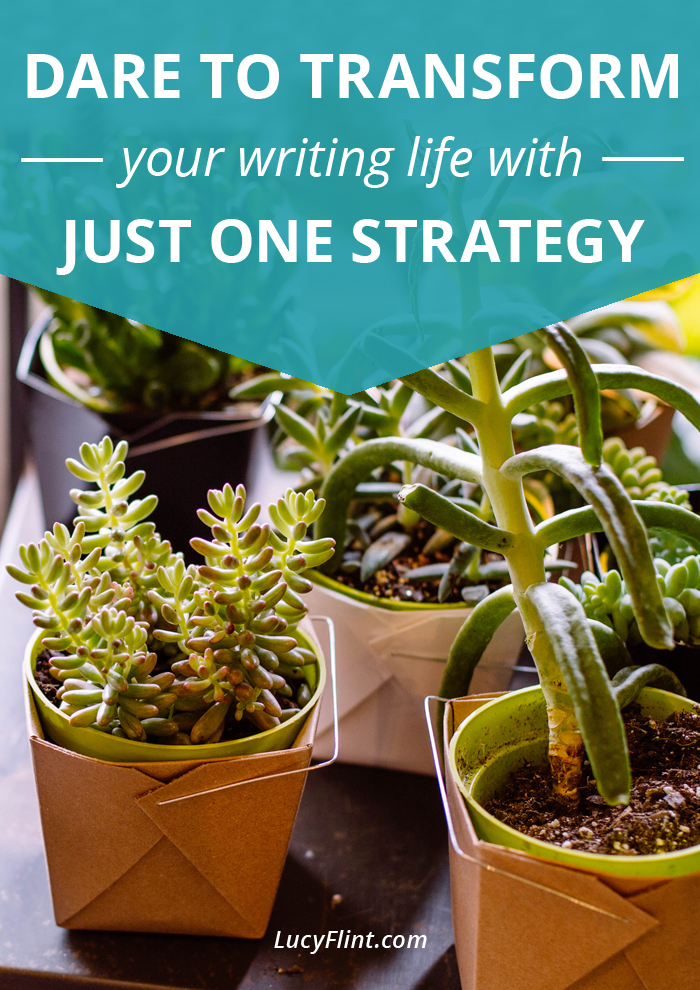The Strength That Supports the Others: Tending Our Commitment to Writing
/As we wrap up this month's series on building strength, I want to finish by digging into what might be the biggest, most vital strength of them all.
Without it, all the other strengths will eventually derail or atrophy.
I want to think a bit about what it looks like to strengthen our commitment.
YES! Our commitment to our work, our commitment to the overall shape of our writing lives, and our commitment to our own health as writers.
Right?!
Without commitment, we're anchorless.
When our enthusiasm runs dry (because it sometimes will), and our imagination is out of gas (yup, it happens), and our routines go belly-up, and our focus is shot to pieces—what is going to be the rallying force that brings everything together again?
What's the thing that sends us looking for better answers, for new ways back into the work, for growth and freshening our skills?
What makes us discontented with our apathy, and motivated for change?
Our commitment. To ourselves, and this crazy-wonderful writing life, and our precious works-in-progress.
So basically, at the end of this Building Strength series, I just want to do a little check-in. For you, and for me.
How's your sense of commitment lately?
On a scale from Ugh to Obsessed!, how's your attachment to your writing life looking? Are you hovering around a Meh, or is your heart beating a little faster these days?
... Before we go much farther, I hafta say: I'm not approaching this whole commitment thing like it's something you or I have to muster up out of thin air. We can't just generate it.
We have to grow it, fertilize it, tend it carefully.
It's essentially our root system, the thing that holds us in place in our writing lives, no matter what crazy storms blow up. And when those roots grow, we grow.
So if, in your heart of hearts, you're feeling a serious amount of Blerg toward your writing life right now, I totally hear you.
And I think that the most important thing you can do for yourself is 1) Listen to that, and 2) Start looking for ways to honestly encourage a bit more excitement.
Not fake excitement. But things that would actually nourish and guide you back to more readiness and enjoyment of your writing work.
So! To that end, here's a kind of Commitment Scan. This is what I want to check in with, and what I want to know about my own writing life right now:
Are there practices that I've forgotten about, or worthy habits that I've let slide? Are there toxic mindsets that I've somehow absorbed, or burdens I've picked up without noticing?
Where have I been having a hard time lately with writing, and how can I swoop in there and fill those places with more creative nourishment, more genuine excitement?
THAT is what I want to figure out today. And I'm guessing that the results ... could be rather transformational.
Let's dive in.
For starters, what does it look like to commit to your writing life, your writing project, mentally? To have your whole mind on board, committed, excited?
Here's a quick checklist on what it means for me:
Clearing all distractions. Yep, I know, you're already convinced: Distractions are Creative Enemy #1. And it's a sure sign for me, that when I'm letting distractions invade, I'm not really committed to whatever's going on.
Bringing the focus. High quality focus is the best way to make use of the time we have for our writing. But if I'm approaching my desk lackadaisically, the thoughts zipping through my head aren't so focused about work. They're more of a collage of everything that's been going on the past week. It takes intentional effort to narrow my thoughts, but when I do, I can start to really engage with the material I'm working on.
Rallying mental resources. When I'm fully committed, I'm ready and willing to do what the work requires. The thinking, the decision-making, the learning. This means clearing the time and space when I realize that I need to do a brainstorming session, or when I need to scout out better research material.
Working on the skills that it most needs. When my work-in-progress or my writing life as a whole is telling me that I need to learn more about story structure, or character development, or I need to enrich my vocabulary: this means I put a plan in place to grow and learn those things.
Mmmmmm, that sounds good! Those are the four areas where I want to develop my mental commitment to my writing work this autumn.
How about you? Which ones stand out? Or are there other signposts of mental commitment for you?
Next on our check-in: What does it look like to commit to our writing work and writing lives emotionally?
Not sniping about it. Ever notice how our commitment, or lack thereof, leaks out of our mouths? When I'm excited about something, everyone around me knows because I will not stop talking about it. (Oh, you noticed that?) And the reverse is also true: when whining and complaining are all that's coming out of my mouth, you can tell: my heart is not on board with this. It sounds old-fashioned, but when we steer our speech a certain way, our actions follow. I wanna commit to my work by what I'm saying.
Ousting Resistance. OH yeah. Seriously, I had no idea what a huge burden Resistance had been for me, until I started consciously choosing to drop it, and to relax into the task at hand instead of maximizing its difficulty. This is one of the biggest game-changers in my emotional health lately, and it has been huge!
Practicing gratitude. For a couple of months now, I've been jotting down at least three things I'm grateful for every night before I go to sleep. It's been a really wonderful practice—a way of reframing the day, no matter how difficult it was. I'd love to get even more intentional about bringing this gratitude mindset into my writing life specifically. The Amazing Brené Brown points out in Daring Greatly that without gratitude, we can't know joy. And I don't know about you, but I want to keep bringing joy into my writing life!
Wow. YES. These are three practices that I've just started working on in general, and basically, I'd like to crank up the volume on all three this autumn. By, um, a LOT.
How about you? What's going on in your mind and heart when you're deeply committed emotionally? And how can you bring some of those practices into your writing life right now?
And then, what does it look like to commit to something creatively?
Showing up with your imagination. Even when your imagination is rusty, sticking with it, and trying not to just write on automatic pilot. ... Let's be real: I totally get that some days, we all just put words down instead of having a rich imaginative experience as we do. Sometimes, that's where we're at, and we're just getting through. But the more we can nourish our imagination and bring it fully into the game, the richer our commitment is going to be. And then everything gets better. ... More on that next week!
Nurturing your creativity in every way. We owe it to ourselves and our work to be growing creatively. Even when, and perhaps especially when, off the clock. Being creatively committed means that we're always putting ourselves in the path of inspiration. Going on those artist dates, reading widely, and learning about more things than just writing. (Again, more on this next week!)
Staying alert to obstacles. When our creativity is gasping, that's an important warning sign. And keeping our creative commitment tuned up means that we take those warning signs super seriously. They give us the essential chance to ask: what's not serving the work, what is getting in the way, what's not working? And then, commitment means we reach for our courage, and go find the answers to those hard questions. (Um: yep, more on this next week.)
Staying in touch with wonder and curiosity. One of the best ways to keep our creative commitment healthy and thriving is to always be seeking wonder, always be awake to our curiosities. Whether they overlap with the work at hand or not, we have to keep in touch with those things that get us excited, that make us lean in. Our creativity depends on it. (Pssst. Next week. Yep.)
This section, even more than the others, is what's got my attention right now. This is where I need the most work, the most time, and the most relentless self-compassion. Mmmm! But good things are coming, my friends.
How about you? How's your creative commitment these days?
Does your imagination feel nourished, or slightly starved? Is it full of good nutrients, or has it been binging on junk food a leetle too long, and that's starting to show a tiny bit?
How can you nurture it like crazy this weekend? Can you grab an hour or two for a fabulous little artist date? And what are the topics that give you that zing of excited curiosity? Can you go chase after one for a while this week?
If you've been hanging out on this blog for a while, you probably know by now: I have ZERO interest in being an incredibly prolific writer at the cost of my health (whether that's physical, emotional, or any other kind of health we can think of!).
Nope. Not doing it.
So, as you and I think through all those questions above, let's also ask this: What does it look like to be committed to your own health?
Physically, this means sleeping, getting those veggies (my two favorite cooking blogs, if you need veg inspiration, are this one and that one), drinking plenty of water (let's do it like this!), and seeking fun ways to move throughout the day.
Creatively, this means pursuing non-writing hobbies. SO important. And it also means making your environment—where you live, where you sleep, and especially where you work!—pleasing and inspiring and yummy in every possible way.
And then emotionally. This means pouring truth into yourself, healing old scars, surrounding yourself with positive people. This especially means that you remind yourself over and over, that you are not your work. You are WAY more valuable than whatever it is that you do each day. This is essential to know no matter what, whether the writing is going well or poorly.
I keep coming back to this over and over, because if there's one thing that my writing life has taught me, it's this: if the writer isn't doing well, her writing's going to suffer. A lot.
And it becomes this horrible little spiral of suffering that does no good and also doesn't write a lot of books.
SO. What's one way that you want to commit more deeply to your own health and well-being? How can you make sure that you're getting the support and fuel you need, so that you're strong enough to commit to your writing work?
Welp, I'M all excited. I hope that those questions helped stir some ideas for you.
Where do you most want to start? What little practice could you add in this weekend, and work on next week, that would strengthen your commitment to your work, your healthy writing life, and your amazing lionhearted self?
(And if you're looking for a few more ideas about this kind of thing, check out The Enormous Virtue of Showing Up, and Finding the Energy to See Our Writing Through. They'll be right up your alley!)
Here's to more health, excitement, vitality, and commitment this autumn.

















